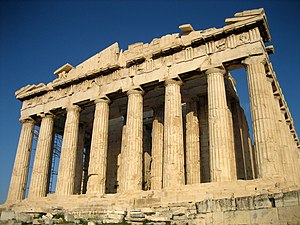Dear Readers,
Each time your Sunday rolls around, I post a short piece coverted from one of my lectures for CHRN/AUG 100. It's my introductory course for students just starting out in Anachronism.
I want to discuss mindset, because it is such an important part of the translation discipline involved in Anachronism. I started to work on analysis of a primary source on Friday, and I'll post the conclusion on Monday. Here I want to discuss how our understanding of mindset affects the conclusions that we make.
The most basic way to explain this principle is to take some arbitrary event, like spotting an eagle as it makes a kill, and then thinking about how different mindsets would respond to that event.
Someone from your time stream would see an eagle and be likely to think about a bunch of disconnected things: feelings about the United States or other countries that use eagles as their symbols, the freedom of flight, the violence of the kill, the helpless little animal, maybe even dredged-up images of food webs from ecology texts that you read in college. The bottom line for you would be, though, that you are watching an eagle kill an animal as eagles are wont to do. Maybe it would evoke the power of nature. Maybe you would not bat an eye.
Let's step out of your shoes for a moment, shall we? In Ancient Greece, bird omens would evoke a god associated with the bird, or a god to whom the viewer of the bird had recently devoted. To see it kill something could mean anger from the god, or a wish for victory in battle. The nature of the bird's appearance as an omen would be the Ancient Greek's main response to the sight. To determine the meaning, it would take a priest and a good understanding of the context.
Likewise, context is important for us. In this case, however, it's temporal context. We have to think about what is normal for the society that our source comes from in order to establish the mindset of the author. We have to think about profession, education, economics, culture, religion, all of it. And we have to think about our own mindset, which is biased by every experience we have ever had. There is a big difference between the writings of a monk whose only safe beverage is beer and the writing of an academic who lives immortally in a University outside of time.
And, as you'll see on Monday, I bring these considerations to the forefront in my translation of primary sources.
Always,
Dr. John Skylar
Chairman
Department of Anachronism
University of Constantinople


![Reblog this post [with Zemanta]](http://img.zemanta.com/reblog_e.png?x-id=834c164c-d0be-4316-b70c-a48acba24bd4)
No comments:
Post a Comment